Effective Garden Pest Control Methods to Keep Your Plants Blooming

Plants bring a sense of freshness and natural beauty to your home, raising the overall look and ambiance of the place. No matter what type of plants you grow, from vibrant flowers, ferns, succulents, shrubs, and grasses to towering trees and seasonal plants, every plant needs good natural pest control to stay fresh and healthy. The plants in your home garden are always prone to pests that can hinder their growth and development and weaken their natural defense system.
Home garden pest control is crucial to keep your garden and plants thriving and blooming. It not only protects the plants from pests but also empowers them with natural defenses and ensures their well-being. There are different methods of natural pest control for plants, such as companion planting, handpicking, natural predators, homemade sprays, repellants, etc. The method you should use basically depends on the type of pests and their seriousness.
Therefore, to preserve the beauty and liveliness of your garden, it’s crucial to understand different pest control methods to keep your plants blooming. In this blog, we will shed light on some of the most effective pest control methods and how to use them to keep pests away from your natural paradise.
Effective Garden Pest Control Methods
There are different ways to protect your plants from pests and ensure their health and safety. These methods are safe for your plants and do not cause any damage to them. Have a look at some of the most effective pest control methods:
Encourage Healthy Soil
The first and most important thing is to maintain the quality of the soil. Ensure the soil is rich in natural fertilizers and has the proper fertility, drainage, and organic matter to support the plant and its growth. Healthy soil produces healthy plants that possess strong immune systems to fight against pests, attacks, and other diseases.
The best way to encourage healthy soil is to use natural fertilizers once a month. Such organic fertilizers activate microbes, ensure healthy root establishment, and contribute to the plant’s growth, which ultimately results in fighting against pests.
Handpicking
Handpicking is the simplest yet one of the most effective home garden pest control methods. Regularly inspect your plants and handpick the visible pests and insects, such as caterpillars, slugs, Japanese beetles, aphids, snails, worms, beetles, etc., manually. To kill them, simply dump them in a bucket of soapy water. It’s crucial to inspect plants regularly to remove pests and insects to prevent serious infections that can completely damage your garden.
Attract Natural Predators
In natural pest control, attracting natural predators is one of the most effective methods to kill or remove pests. Natural predators such as ladybugs, lacewings, spider mites, hoverflies, predatory mites, parasitic wasps, etc., control and reduce pests either by eating them or hatching their young inside them.
These insects’ prey on pests; therefore, it’s easy to attract them to your garden. They love flowers, so growing a lot of flowers like dill, cosmos, yarrow, etc., in your garden, especially near the vegetable plants, is the best way to attract them and keep pests away.
Companion Planting
Companion planting is one of the best natural pest control methods that involves growing certain plants together to repel pests naturally. In simple words, there are certain plants, like marigolds, chives, mint, cilantro, and basil, that actually repel pests and attract beneficial insects that protect your plants from pests and keep them safe and healthy. Growing these plants helps you create a protective barrier that guards your plants against common garden pests and maintains a pest-free haven. For example:
- Basil’s strong scent repels asparagus beetles, carrot flies, and whitefly
- Nepata(catmint) repels aphids
- Mint deters cabbage moths, whiteflies, and ants
- Chive’s onion scent repels aphids
- Onions deter aphids, carrot flies, and larger pests
- Tansy’s strong scent deters ants
- Garlic repel aphids, cabbage moths, and bigger pests
Use Homemade Sprays as Natural Pest Repellants
If you want to use repellents, natural pest repellents are the best fit compared to chemical repellents that can damage your plants. There are many organic pest repellants, like neem oil, diatomaceous earth, soap spray, salt spray, etc., that can kill the pests and ensure that your plants are pest-free and healthy.
Besides that, you can even make homemade mosquito spray using garlic and onion together and insect spray by using liquid soap, apple cider vinegar, vegetable oil, caffeine, eucalyptus oil, etc. All these things work as natural pest repellants can help you repel pests without harming plants.
Rotate Crops
Crop Rotation is the process of changing the types of crops you grow in your garden from season to season. Rotating crops is one of the most important approaches to keep the pests away as it disrupts the life cycle of pests that target a specific plant and prevent their permanent establishment in your garden.
For example, if you grow tomatoes in one season, consider growing carrots or potatoes in the next season in that area. This prevents the permanent establishment of pests in soil that target tomatoes.
Rotating crops not only breaks the pests’ lifecycle but also keeps the soil nutritious by providing the required fertilizers and nitrogens. Make sure to leave at least a 2-3 year gap in between planting the same crop again in the same area.
Use Physical Barriers
Create good physical barriers around the plants to keep the pests away from reaching the plants and crops. It is one of the most effective home garden pest control methods that you can use to protect your plants from all types and sizes of pests. For example- you can use materials like copper tape to prevent snails, eggshells to keep small insects away, netting to prevent birds and large pests, etc.
Moreover, you can even install floating row covers or small nets to keep the pests out of the reach of your plants. Simply place them on the row of crops, use stakes to keep them intact, and secure them around the edges to prevent the pests from gaining access even by walking on the soil or sneaking underneath.
Besides that, for newly grown plants, you can take a newspaper, roll it up, and tuck it in the ground around your plant. When the plant grows to a certain level, remove the newspaper and use other pest control methods.
Spray Essential Oils
Spraying essential oils can be an effective natural pest control method, especially if your problem is small insects. Different essential oils protect your plants from different types of pests. For example:
- Peppermint oil is effective against ants, beetles, aphids, spiders, and rodents
- Tea tree oil safeguards against mold, mildew, and some plant diseases.
- Eucalyptus oil repels mosquitoes, flies, and other flying insects etc.
- Lavender oil is helpful against mosquitoes, fleas, moths, and flies.
- Mint oil is effective against ants, aphids, flea beetles, cabbage moths, and rodents.
- Rosemary oil is useful against Mosquitoes, cabbage moths, carrot flies, and some types of beetles.
Simply spray the essential oil on the leaves of the plants to repel the pests. You can also mix some water to reduce the power of essential oil and use it against pests like aphids, ants, whiteflies, spider mites, etc.
Spray BT to Kill Pests
Another common home garden pest control method is spraying BT (Bacillus thuringiensis) on the plants to kill the pests and insects. This is the most effective method to kill caterpillars and larvae of moths and butterflies, earworms, aphids, borers, beetles, etc., that are a big threat to the plant’s health and growth.
BT is a bacterium that produces toxins for pests but does not cause any harm to plants. Simply find the BT in the form of liquid concentrates, dusts, or ready-to-use sprays, concentrate it with water if required, fill it in the sprayer and spray it on your plants as per the given instructions.
Practice Interplanting
Interplanting is one of the most strategic natural pest control methods. It involves using alternate crops, herbs, and flowers to confuse the pests and prevent them from permanent establishment. Pests enjoy monocrops, and when you grow the same type of crops, they are more prone to establishing themselves and damaging your garden. Interplanting is the best solution for this. Simply produce alternate rows of diverse plants, herbs, veggies, and flowers, as well as pest-repelling plants and flowers, to keep pests away from your crops.
Best Homemade Sprays for Natural Pest Control
Garlic and Onion: Boil some garlic and onion and strain it. Put the filtered water with a pungent smell in a spray bottle to use as a mosquito repellent for your plants.
Soap and Water: A solution of soap and water is an effective repellent to control pests. Simply mix a spoon of liquid soap with a cup of water and spray it on the plants to kill the pests.
Neem oil: It is one of the most popular and widely used natural pesticides. You can spray some neem oil on the plants to protect them from a variety of pests, including mealybugs.
Garlic: Garlic spray is one of the most popular natural pesticides that kill and control a wide range of pests. Crush a few cloves of garlic, mix it with water, and spray it on the plants to repel pests.
Caffeine: As caffeine kills the pests, combining a mixture of espresso and water and spraying it on the plants helps you kill other pests like slugs and snails that can damage your plants otherwise.
Milk and Water: Mix one part of milk with ten parts of water and spray it on the plants to eliminate other serious pests like Mildew and Black spots.
Tea: Lapsang Souchong tea, the smokiest black tea, is the most effective repellent against possums. Boil some tea bags, let the water cool down and spray it on the plants where possums are present.
Chili and Garlic: This timeless classic mixture of chili and garlic is an effective homemade insect repellent against small sucking insects. Mix powdered chili with crushed garlic and some vegetable oil and keep it overnight. Strain and use the solution to kill pests.
Salt Spray: The easiest one is mixing some salt with water and using it as a natural repellent to keep the pests away and help plants absorb some important nutrients also.
Conclusion
Plants provide a touch of natural beauty and enhance the visual appeal of your space. Protecting these plants from pests is crucial to increase their lifetime, maintain their health, and protect them from damage. We have discussed some of the best natural pest control methods to keep your plants and garden safe from different types of pests and insects. From handpicking to practice interplanting, we have mentioned all the effective methods that have been in use for years. We have also unveiled some of the best homemade sprays to kill pests and ensure the plant’s vitality and exquisite allure. So, employ any of the above-mentioned methods to shield your delicate plants from invasive pests and bugs.
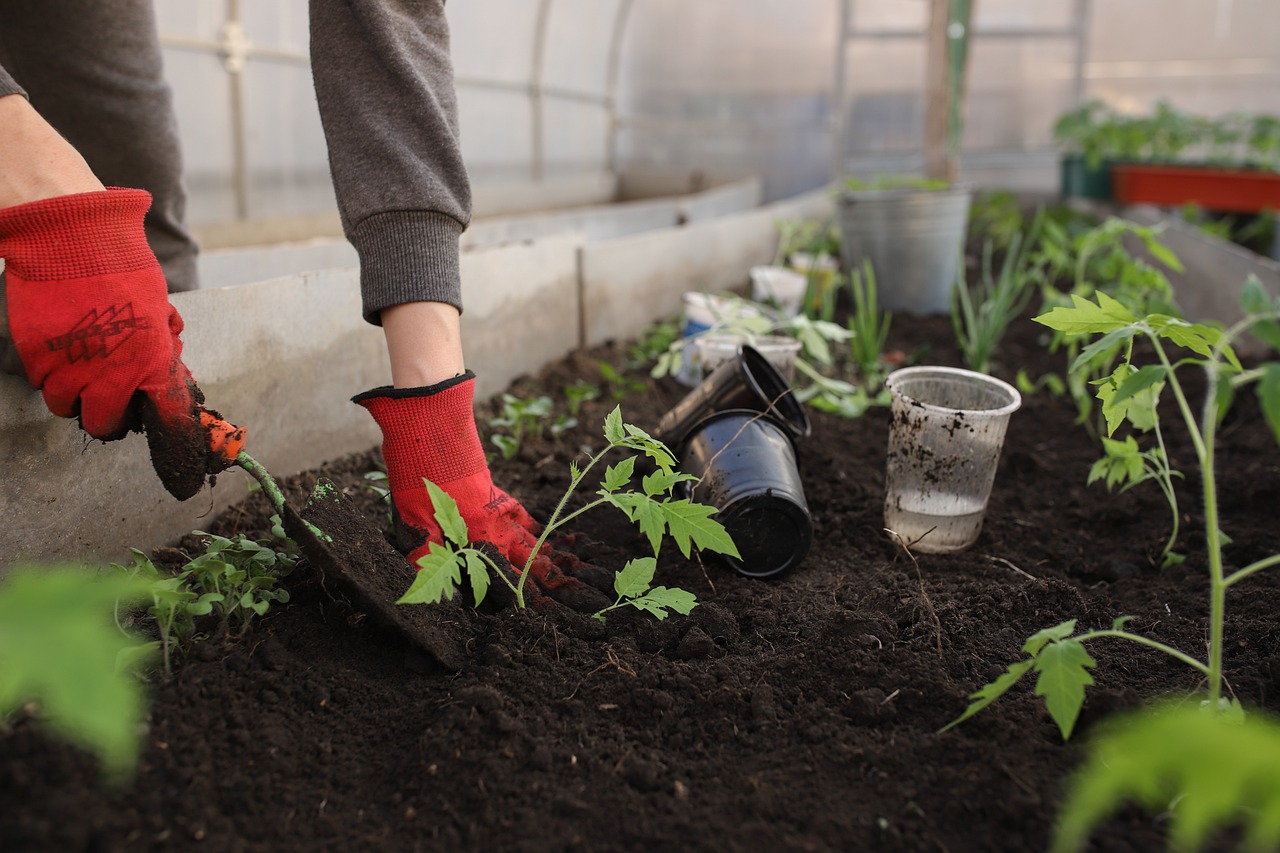
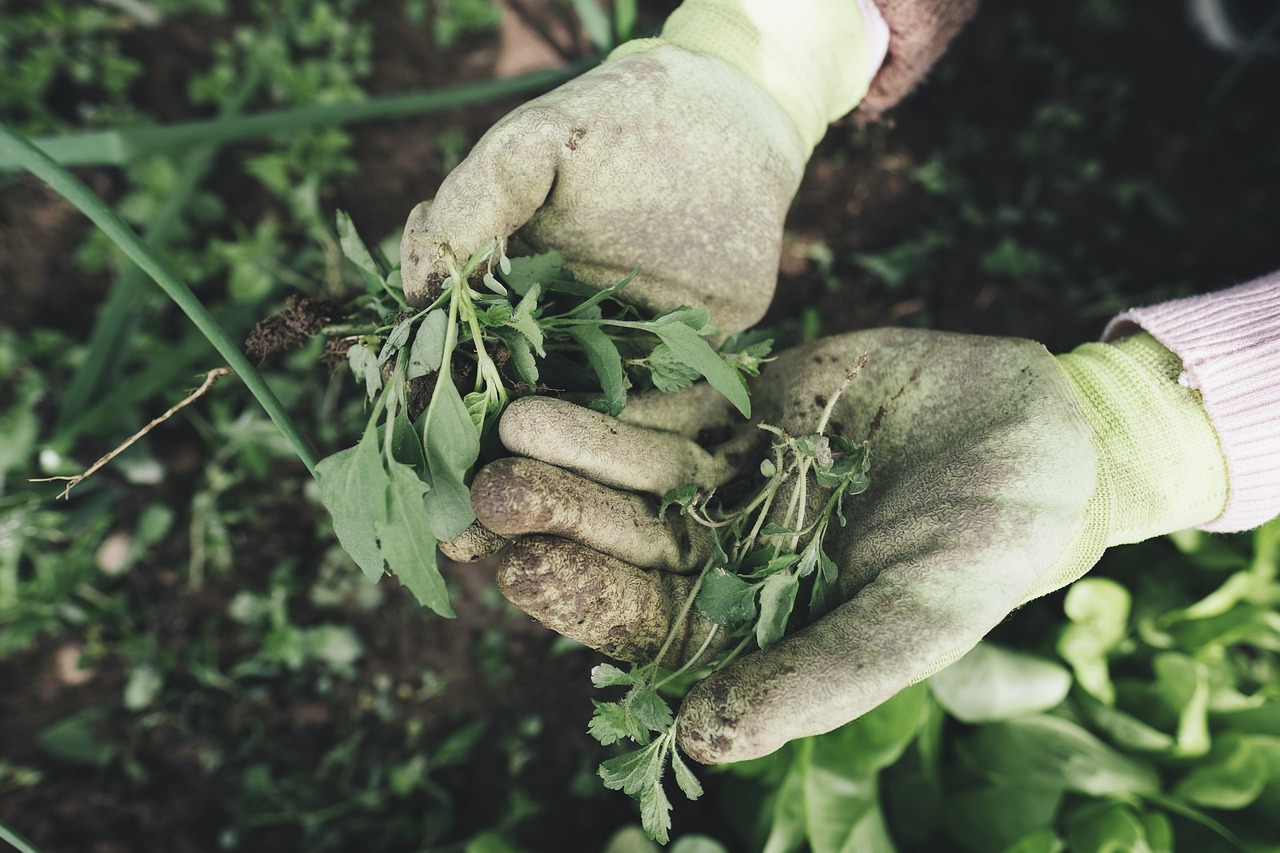
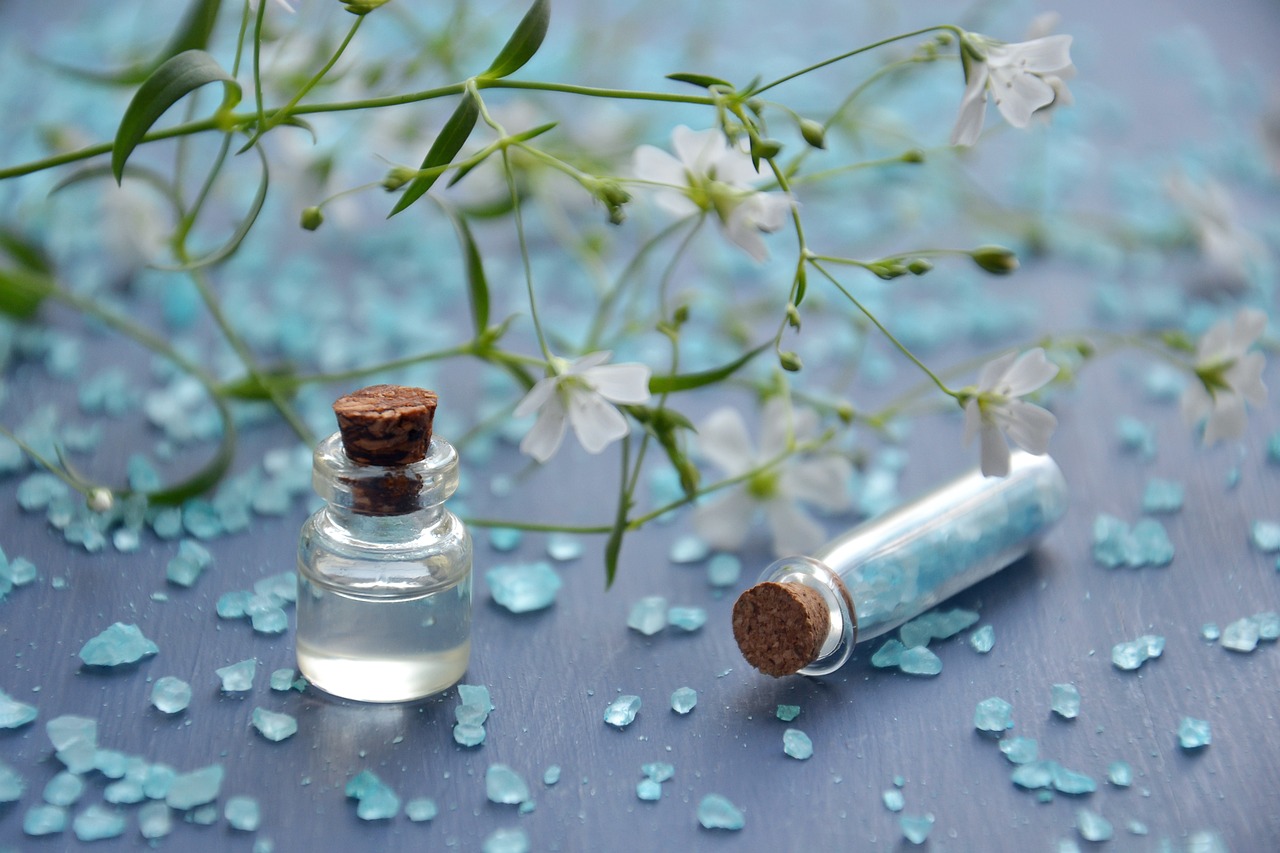
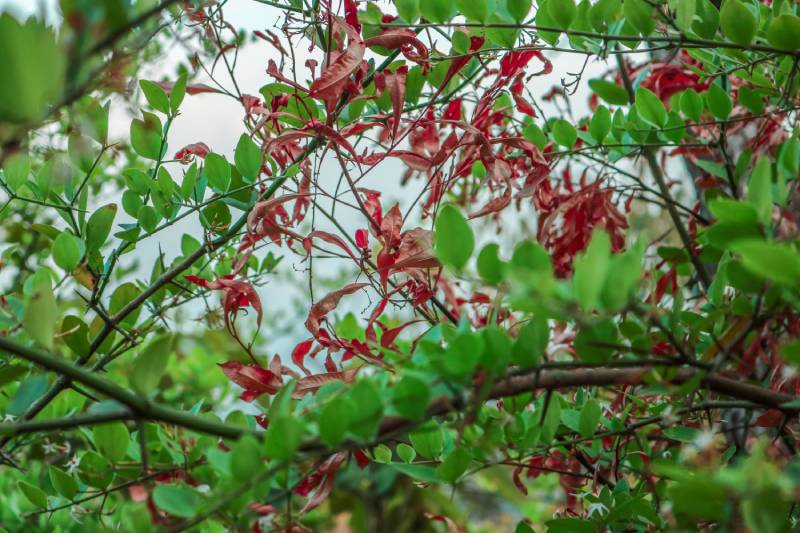
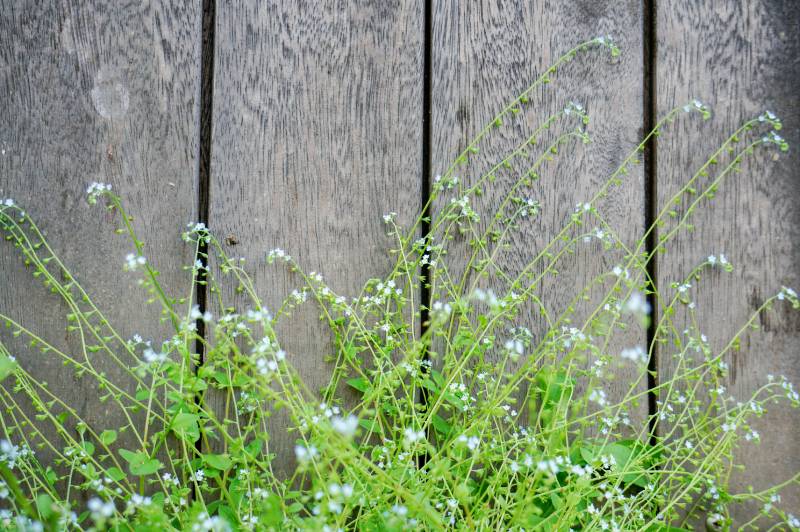
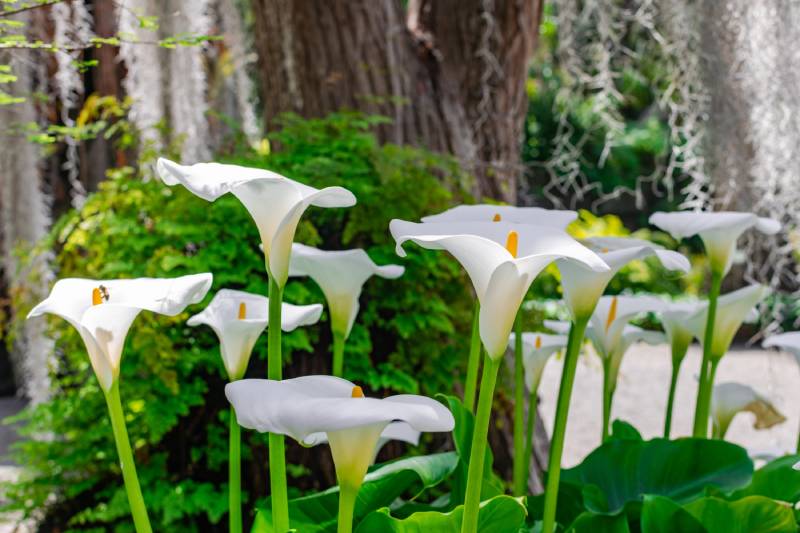
Leave a Reply